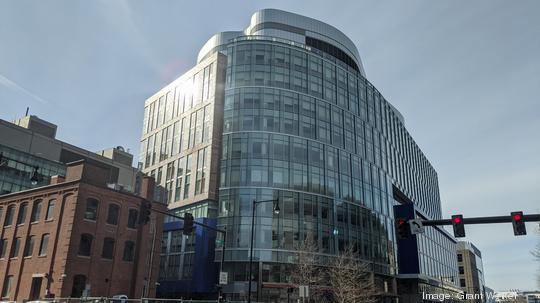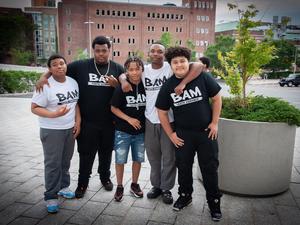
Many companies are embracing some form of work-from-anywhere culture, including Meta. The company formerly known as Facebook, which has an office in Kendall Square, is allowing employees to request a short or indefinite extension of their remote-work period.
This hybrid workforce has forced Meta to make some major changes, from a tech perspective, to give remote and in-person employees around the globe an equitable experience, according to Atish Banerjea, Meta’s chief information officer, who spoke this week during EmTech Next, the annual conference hosted by MIT Technology Review.
EmTech speakers and business leaders at the hybrid event, itself in-person and online, focused their discussions around the future of work.
“I think this is early stages of the game here,” Banerjea said. “The ideal goal there is that people who are physically in the office have the same experience and the same opportunities as the people who are participating remotely. And so, I think there are several things we sort of need to do in order to do this successfully.
Here are the main takeaways from his talk.
Every employee needs to have an equal voice — especially in hybrid meetings. We may need new technology to accomplish that goal.
With people returning to the office, there’s a strong likelihood that in-person meetings will include remote workers joining via videoconference. There goes the simplicity of each person having their own box on a videoconference and the ability to see everyone or digitally raise your hand to speak.
Banerjea said Meta is experimenting with name-tagging technology, so people can still see who is speaking in a videoconference and cameras that focus on the speaker in a room.
In the absence of this perfect hybrid world, Banerjea said bringing empathy to work is crucial.
“Because people are not currently having fully equitable experiences, you have to really make sure that you go that extra mile to make sure that the remote worker feels just as empowered, just as much connected to the company,” Banerjea said.
Virtual reality should not replace in-person interactions. But in the near future, it could replace videoconferences.
Naturally, Meta is bringing employees into the Metaverse for team meetings. Eighteen months into the pandemic, Banerjea said, the company had its first offsite using the Meta Horizon product to sit in a virtual conference room.
“I would basically feel very confident the experiences that we can and are creating in the VR world are much closer to being the in-person experience than what you see on a two-dimensional screen today,” Banerjea said.
While not every company has the internal resources needed to build or integrate these tools just yet, there are companies offering hybrid conferencing tools and ways to democratize hybrid workplaces with current technology.
Companies’ chief information officers should play a major role in building a hybrid workplace.
Banerjea reflected on the beginning of his career and joining then-Facebook as its CIO in October 2016. At the time, he said most CIO roles were very tech focused. Banerjea said he now sees CIOs as business leaders.
“You have to have a really good business focus to make sure that the experiences you’re creating actually work equitably across the whole company,” Banerjea said.
He added that this includes understanding that business needs are constantly changing, now more than ever, and leaders need to be flexible.
“Having really that flexible mindset and being ready to adapt and change very quickly in terms of what you’re doing…I think that’s going to be really important for us to be successful as CIOs going forward,” Banerjea said.








